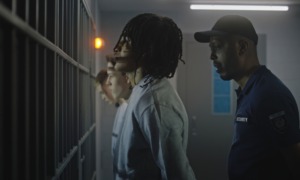In 2001, my 13-year-old son, Corey, was sent to what the New York Times called “the worst juvenile prison in the country.”
called “the worst juvenile prison in the country.”
What crime had he committed that earned him this hellish journey to the Tallulah Correctional Center for Youth in Louisiana? He stole a $300 stereo out of pick up after he smashed out the window with a crowbar. His sentence was five years in one of the most brutal facilities in the United States.
The families of children who are system involved are often thought of as lazy, uneducated, uncaring or worse. But a new report by Justice for Families (J4F) gives us a much different picture of families and relies on substantial data rather than outdated myths and stereotypes.
I was given a second chance to make different decisions for my youngest daughter, nearly seven years later. Today, that daughter is in her second semester of college, having earned a 3.7 GPA in her first semester and has never again been involved in the system. Sadly, for my son, that second chance never came. Today, he is living on taxpayer money, serving a 12-year sentence in a state prison.
In 20 sites across eight states, Justice for Families, the Data Center and our local partners, led by families of kids involved in the system, conducted two dozen focus groups and took exhaustive surveys from more than 1,000 families who were involved in the juvenile justice system.
We conducted a media review that looked at hundreds of articles discussing families and juvenile justice. Lastly, we conducted an extensive literature review of promising approaches led by systems and community based organizations.
Families designed the focus group and survey questions and collected and analyzed the data, proving that families are capable, they do care and they do, indeed, want to be involved.
With my son’s involvement in the juvenile justice system, I joined the ranks of families nationwide that have no voice in the care and treatment of their children and even less say in the processes and mechanisms of the system.
Seventy nine percent of families surveyed reported they were never asked by a probation officer what should happen to their loved one and another astonishing 86 percent reported never being consulted by the family court judge!
In addition to this, 92 percent of families surveyed wanted to be more engaged in local, state and federal policy discussions regarding how juvenile justice systems work and the kinds of programs that are available. This data and the analysis that followed certainly debunk the myth that we don’t care!
Justice for Families “Blueprint for Youth Justice Transformation” provides answers to problems that have long plagued juvenile justice systems. The Blueprint gives concrete simple steps, as well as longer-term solutions, that systems can adopt to improve out comes for youth, their families and ultimately their communities as a whole.
If we continue on our current path of punishment and confinement we are robbing our communities and damaging the futures of our children right along with our own future as a just and fair society. There needs to be a fundamental change in thinking about vulnerable children and that shift begins with putting the success of children and their communities ahead of profit, “tough on crime” rhetoric and the age old stereotyping of “those kids and families.”
As James Baldwin once said, “For these are all our children, we will all profit by or pay for what they become.”
Incarceration of young people is bad public policy, draining resources away from the very solutions that offer young people a shot at a successful future, while also increasing recidivism rates and decreasing public safety for all of us. Please join us in our efforts to end the caging of children.
Together, we can make a difference!
Grace Bauer is the Co-Director of Justice for Families, a passionate
advocate for families and the mother of a young man involved in both the
juvenile and adult criminal justice system.






























